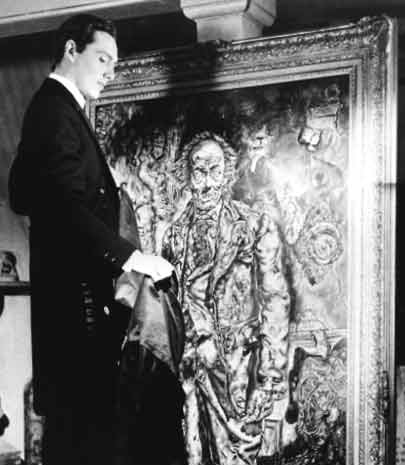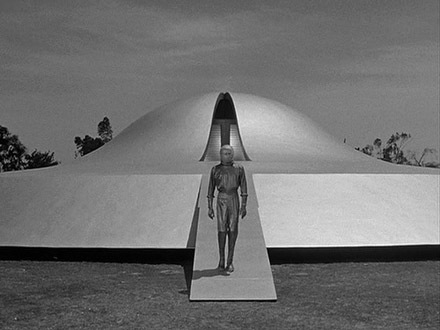Fifty Shades of Grey, an erotic romance novel, has been steaming up e-ink displays all over the United States, with more than 10 million copies sold. This is remarkable because to my knowledge this is the first book to make it onto the best seller’s list on the force of e-publications alone, but also because this book has a twist - or rather a kink. The relationship is not, in the parlance of those who know, “vanilla.” The characters are Anastasia Steele, a virgin, green-eyed, bookish beauty with low self-esteem, and Christian Grey, a steely, CEO billionaire of unusual sexual prowess, a scarred past, and a very dominant persona. Their relationship is well lubricated by his limitless wealth and the free time that running a large, lucrative corporation apparently affords. All love stories must have tension, and here it draws from Christian Grey’s desire to hold Anastasia to a strict set of rules, and to punish her when she transgresses. Christian Grey would by turns fondle and paddle the well-formed backside of innocent Anastasia Steele. Anastasia, while appreciative of fondling, wants neither the rules nor the punishment. The scene thus set, the reader is carried along while these tensions find their inevitable release.
It is not at all clear why this is the book that introduces middle America to alternative sex. There are promising components - the book features a relatable female protagonist, a sexy antagonist and an alluring title - but clichés abound. Some passages had your correspondent chuckling out loud. At one point, Anastasia is left “a quivering mass of raging female hormones.” She reports her expletives: Earnest “Shit”-s and “Holy cow”-s abound.
Other passages are repetitive– language lifted almost verbatim from previous sections. Anastasia “explodes around him,” or is “pushed over the edge” by his husky-voiced “Oh, baby” dozens of times over the course of the book. The style is breathless, imperative and hopelessly first-person. Sex is always mind-blowing, wanton, and without reservation; so superlative one feels sorry for the dissapointment due James’ adolescent readership. Nor is sex is ever turned down, or at least not for long. The book perpetuates the myth that men are perpetually aroused, and that they, for some reason, find virginity and innocence especially appealing. Like much adult media, Fifty Shades of Grey is explicit but not candid.

To be fair, it never claimed to be anything but a work of fantasy. The antagonist, Christian Grey, is an astounding polymath. Proficient dancer, pianist, pilot, philanthropist, dedicated student of sensuality, and CEO of a large company apparently in the process of airlifting food into Darfur (because feeding the hungry is the new black leather jacket). He inhabits the magic realm of the oligarchy: Full of omnipresent dedicated servants, spontaneous business trips, linen shirts, “ultra-modern” furnishings, an excess of empty space and - perhaps most impressive of all - the ability to purchase perfectly fitting clothes for a stranger without taking a single measurement. Tailors the world over would burn with jealousy. His leadership of his company seems to consist of the occasional speech, loud one-sided phone calls, and meetings he consents to sit through while exchanging witty emails with his girlfriend. His CEO trappings seem just that, trappings.
Exploring New Worlds of Sensation
Chrisian Grey’s far-fetched successes do make him a more compelling guide into the world of alternative sex. It is harder to dismiss him as one of those people when in fact he is one of those people whom we all envy and at least pretend to hope to become. It is a bit like Warren Buffet talking about tax ineqaulity. Christian Grey fits nicely into a commonly admired cast– a super-rich philanthropist with beauty and intelligence to match his wealth; a cross between Bill Gates and Kim Kardashian. The world he leads us to is indeed different, and the exploration of this reality is the redeeming feature of the book.

This is a common sub-genre in Science Fiction (e.g. E.T., The Animorphs, Contact, even Blade Runner and the legend of the Golem have features common to this genre). A human stumbles across an alien. Interaction ensues. In the best case, this provides a window into the human psyche. Often we learn the humanity of the alien. It becomes more admirable and noble than our petty fellows (Avatar, The Day the Earth Stood Still). In the present case, the alien offers a Non-Disclosure Agreement and a contract. It is an invitation to form a secret society of two. There are clear cut roles with enumerated duties. Christian will play the dominant. He takes care of his submissive, punishing her for deviations from The Rules, but also keeping her in good health, and, so long as she obeys, happy. In return Anastasia will obey him in all things, including her diet (limited to three square meals from a prescribed list), exercise (four weekly sessions with a personal trainer), masturbation (prohibited), sleep schedule (strictly 8 hours a night), and of course, sex (kinky). There are escape clauses - all she has to do is say the word - and prohibitions of certain activities most people have only ever heard of in dark corners of the internet.
As human-meets-alien science fiction, Fifty Shades of Grey is successful, broadening what it means to be sexual in America. The reader learns of a different sexuality in a manner which makes it seem accessible and friendly. After reading the book, the reader understands why bondage is something people enjoy. He might understand the appeal of certain props, and the usefulness of rules he might agree upon with his partner in order to stay safe during a scenario. Of course, this isn’t intellectually ground-breaking. It doesn’t attempt to highlight any features of us as a species, but it does address how our society deals with sexuality in the current day and age. It holds up an alternative, and compares it to the familiar.
The books success is not unmitigated. I think it fair to say that B.D.S.M. has an advertising problems, or maybe better put, B.D.S.M. advertises problems. This book fits the mold. For Anastasia, as soon as she learns of Christian’s proclivities, the questions are “Why? When? How, and with whom?” in roughly that order. At first Christian tells her it’s simply a part of who he is, but eventually we learn that Christian had an abusive childhood and a troubled adolescence:
“Why do you need to control me?”
“Because it satisfies a need in my that wasn’t met in my formative years.”
The subtext is that playing with sexual power dynamics is not something a normal, healthy person with a happy childhood would do with his partner. In other words, Fifty Shades of Grey does nothing to address the stereotype that you must be somehow damaged or depraved to engage in this sort of behavior.
Shortcomings aside, James does provide a healthy model of adult sexuality. The characters in the book have frank conversations about their desires. Honesty is rewarded with greater intimacy. Compromises are made. They establish terms and stand up for themselves. They talk about sexual health and their sexuality. Condoms are used with admirable regularity. There are take-aways for even the most square among us, the most salubrious is that its okay to experiment, to be playful in the bedroom. If there is one thing our society needs, it is to play more. The book is effective: Americans are talking about it and putting their money were their mouth is. The book has, in fact, started a national debate, and opened the minds of people all over the country. The publication and popularity of this book are a step forward for American sexuality.